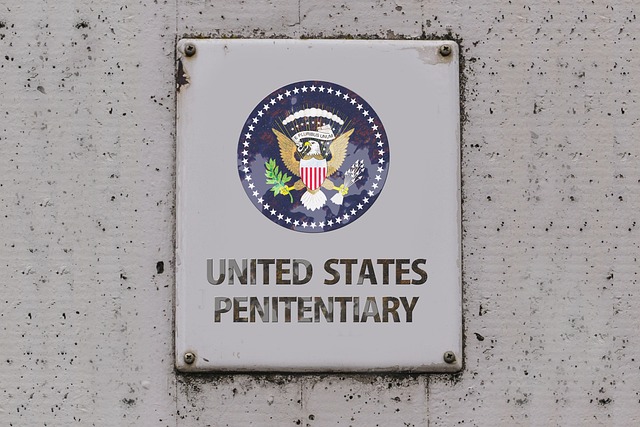After a DUI conviction, individuals face high insurance premiums due to increased risk assessments. Vehicle Safety Features (VSF) like ABS, ESC, and airbags can help reduce these costs by demonstrating responsible driving behavior and mitigating liability in accidents. Understanding both VSF and DUI law is crucial for navigating insurance claims post-DUI, ensuring fair settlements, and adhering to legal requirements. By strategically highlighting VSF and being informed about DUI laws, individuals can proactively manage risk and secure affordable coverage while promoting vehicle safety.
Post-DUI, navigating insurance adjustments can be complex. This article guides you through understanding crucial aspects of insurance claims after a DUI arrest, with a focus on vehicle safety features and their impact on legal requirements. We explore strategies to enhance your post-DUI insurance adjustments, ensuring compliance with DUI law while securing fair compensation for your needs. By delving into these key areas, you’ll gain insights to effectively manage your insurance process.
- Understanding Insurance Adjustments After a DUI
- The Role of Vehicle Safety Features in DUI Cases
- Navigating Legal Requirements and Insurance Claims
- Strategies to Enhance Post-DUI Insurance Adjustments
Understanding Insurance Adjustments After a DUI

After a DUI (Driving Under the Influence) conviction, individuals often face significant challenges when it comes to their insurance coverage. Understanding insurance adjustments post-DUI is crucial for navigating this complex landscape. Insurance companies thoroughly evaluate risk factors when determining policy premiums and coverage, and a DUI significantly impacts these assessments.
Vehicle Safety Features play a pivotal role in insurance adjustments post-DUI. Advanced safety technologies like automatic emergency braking, lane departure warnings, and anti-lock brakes can mitigate the financial burden of increased premiums. Insurance providers recognize these features as indicators of responsible driving behavior, potentially offering discounts or reduced rates to drivers equipped with such systems. Additionally, adhering to local DUI laws and maintaining a clean driving record post-conviction is essential for securing favorable insurance terms, ensuring continued access to affordable coverage while promoting vehicle safety.
The Role of Vehicle Safety Features in DUI Cases

In the realm of DUI (Driving Under the Influence) cases, vehicle safety features play a significant role in insurance adjustments post-incident. Modern vehicles are equipped with various advanced safety systems designed to prevent accidents and protect occupants, which can have a direct impact on liability and insurance claims. These features, mandated by many DUI laws, include airbag systems, anti-lock braking (ABS), electronic stability control (ESC), and lane departure warning (LDW) among others.
When evaluating an insurance claim from a DUI incident, the presence and functionality of these safety features are considered. For instance, if a driver is at fault due to impaired judgment or reflexes, the effectiveness of safety systems like ABS and ESC can mitigate their liability. Conversely, if the vehicle lacked essential safety features required by DUI laws, it might increase the insured’s responsibility for damages. This nuanced understanding highlights the interplay between Vehicle Safety Features and DUI Law, impacting adjustments post-DUI incident.
Navigating Legal Requirements and Insurance Claims

After a DUI (Driving Under the Influence) arrest, individuals often face complex legal and financial implications. Navigating these challenges requires understanding both the DUI law and insurance claims process. One crucial aspect to consider is the role of vehicle safety features. Modern cars are equipped with advanced technologies designed to enhance driver awareness and protect occupants in case of an accident. These safety features can significantly impact insurance claims, especially when it comes to adjusting policies post-DUI.
When filing an insurance claim after a DUI, it’s essential to disclose all relevant information, including any vehicle safety systems that might have been involved or affected by the incident. Insurance adjusters will assess the damage and take into account factors such as anti-lock braking systems (ABS), electronic stability control (ESC), and airbag deployment—all of which can influence claim settlements. Understanding how these features work and their potential impact on your policy is vital, especially when dealing with DUI-related incidents to ensure a fair adjustment.
Strategies to Enhance Post-DUI Insurance Adjustments

After a DUI arrest, navigating insurance adjustments can be challenging. One effective strategy is to highlight Vehicle Safety Features (VSF) in your claim. Many modern vehicles come equipped with advanced safety systems like automatic emergency braking and lane-keeping assist, which can reduce premiums due to their preventative nature. Emphasizing these features when applying for insurance or adjusting a policy shows a proactive approach to risk management, potentially leading to more favorable terms.
Additionally, understanding the DUI Law is paramount. Knowledge of state-specific laws regarding insurance requirements post-DUI can empower you to make informed decisions. Some jurisdictions mandate higher liability coverage, and being aware of these mandates allows for better preparation when negotiating adjustments. This proactive knowledge ensures that your claims process is smoother and that you receive appropriate compensation based on the law and industry standards.
After a DUI arrest, navigating insurance adjustments can be complex. Understanding how vehicle safety features play a role in these cases is crucial, as it can significantly impact legal requirements and claims outcomes. By familiarizing yourself with the latest DUI laws and employing strategies to enhance post-DUI insurance adjustments, you can ensure a smoother process and potentially reduce financial burdens. Remember, proactive measures and knowledge of both vehicle safety features and DUI law are key to getting the best possible outcome.






